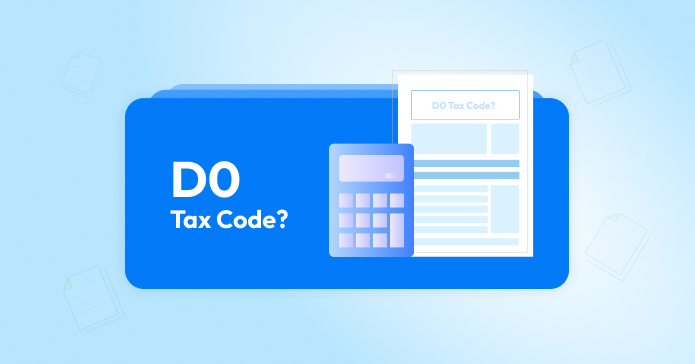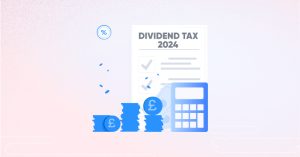A D0 tax code is a specific type of tax code used in the United Kingdom by HM Revenue and Customs (HMRC). It is given to individuals who are required to pay a higher rate of income tax, currently set at 40%. This means that no personal allowance (£12,750), which is the amount of income you can earn before you start paying tax, is applied. In other words, you cannot benefit from a personal allowance.
Why Would I Have a D0 Tax Code?
There are several reasons why you might have been given a D0 tax code by HMRC. The most common reason is that your income level has increased and you are now in the higher tax bracket. This could be due to
- a promotion,
- starting a new job with a higher salary, or
- receiving additional income from investments or self-employment.
- Another reason could be that you have underpaid your taxes in the past and HMRC is adjusting your tax code to collect the owed amount.
- having a second job
You can keep track of your tax codes on your pay-as-you-earn slips. To learn more about how to find your tax code and what a tax code means, take a look at our comprehensive guide to what is a tax code.
Is D0 an Emergency Tax Code?
D0 is not an emergency tax code. Emergency tax codes are temporary codes used when employers do not have enough information about an employee's tax status. These codes usually have an 'emergency' prefix, such as 'emergency code 1250L'. D0 is a permanent tax code given to individuals who are required to pay the higher 40% rate of income tax, so it is not considered an emergency measure.
How to Change My D0 Tax Code?
You can request a change to your D0 tax code by contacting HMRC directly. You may also need to provide additional information about your income and any deductions or allowances you are entitled to, such as tax relief for work expenses or charitable donations. It is important to keep your tax code up-to-date to ensure that you are paying the correct amount of tax.
You can also seek advice from a financial advisor or accountant who can assist you in understanding and managing your D0 tax code.
Claiming a Tax Rebate with a D0 Tax Code
If you believe that you have overpaid taxes with a D0 tax code, you may be eligible for a tax rebate. This can happen if you have been taxed on your full salary without taking into account any deductions or allowances that you are entitled to.
Debitam can help you claim your tax rebate if you believe you have overpaid tax with your D0 Tax Code.
Conclusion
In summary, a D0 tax code indicates that you are required to pay the higher 40% rate of income tax and are not eligible for personal allowance. This could be due to various reasons, including a higher income or underpaid taxes. It is important to keep track of your tax codes and make any necessary changes to ensure you are paying the correct amount of tax. Debitam can assist you in understanding your D0 tax code and claiming a tax rebate if you have overpaid taxes. So, be sure to keep an eye on your tax codes and take action if necessary.
Keep learning about taxes and stay informed with Debitam's informative articles on taxation. Remember, knowledge is power when it comes to your finances. We hope this guide has helped you understand the basics of D0 tax codes and their significance in your taxes. Stay financially savvy!













